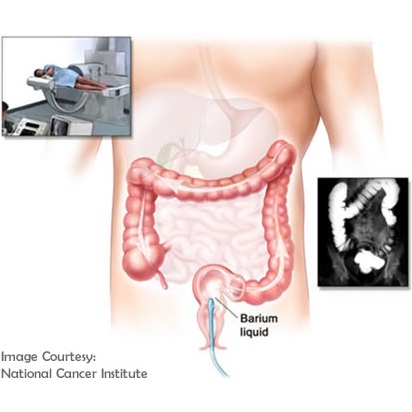Barium enemas are used to examine the patient's colon for abnormalities, including cancer and pre-cancerous polyps.
In a single-contrast barium enema a special liquid containing barium is inserted into the colon. In a double-contrast barium enema barium and air are inserted into the colon. The double-contrast technique allows for better detection of polyps in the colon.
Before the procedure, the colon must be cleaned out with a laxative and/or a regular enema. Then, a lubricated tube is placed in the rectum and the barium and air are injected. This may cause feelings of bloating and discomfort, but taking slow, deep breaths may help. X-rays are taken as the barium enters and leaves the body. Views may be taken with the patient lying in several different positions. The whole procedure lasts 30-60 minutes. After the procedure, the patient should drink fluids, rest and possibly take a cleansing enema. Complications are very rare but may occur if there is an allergic reaction to the barium or tearing of the colon.1

